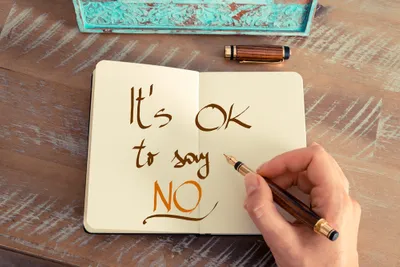We often lose focus of ourselves in our busy lives, which can negatively impact our mental and physical health. There’s always something that needs to be done for someone else. Well, this year, turn the spotlight back on you.
If you’re still looking for a New Year’s Resolution, start by looking inward. What is it you really need to improve your well-being, which will then translate across all areas of your life as well as your relationships with others? Let’s look at six self-care promises for 2017…
1. Be Kinder to Yourself
The idea of setting weight loss goals or other similar goals is that you’re implying you’ve failed and need to be improved. While getting a bit of exercise and eating better can ultimately improve how you feel at any given time, you shouldn’t choose a resolution as a punishment for yourself.
ElephantJournal.com explains that it’s all fine and dandy to resolve to get into better shape, but you should ask yourself, “Am I doing it for myself, or for others?” Determine whether your goals are for your own satisfaction, and not to meet the perceived standards of those around you, notes the source.
2. Embrace Sankalpa
Sankalpa is rooted in the practice of Yoga. Roughly translated, it’s aim is to guide you towards things that will make you happy, without changing your core self. Most traditional resolutions fail because they’re rooted in “the misguided desires of the ego, senses, and conditioning,” explains YogaInternational.com.
The idea behind Sankalpa is to believe that you’re already good enough to fulfill your dreams, and you just need to channel the right energy. This “vow” to yourself is more likely to succeed because “a sankalpa requires none of the ego-driven willpower we typically summon to make changes,” adds the source.
3. Stop more Often
What happens when you drive your car continuously, without stopping once a while? If you don’t know from experience—it will start to overheat or break down or, more likely, you’ll just run out of gas before any of that happens.
In 2017, try to stop more often. Don’t just stand there in one spot – but put away your electronic devices, move your less important meetings, and “find somewhere beautiful—a park, the woods, your kitchen—and just sit there, [and] be still,” suggests StrongSensitiveSouls.com. “It’s meditative and calming. Make time for stillness regularly.”
4. Learn to Appreciate your Reflection
We often focus so much on the things we don’t like about our face and body that we miss the features that we should love. This doesn’t mean you have to completely fall in love with yourself and spend each day taking bathroom mirror selfies (though a few here and there are fine), but you should “find something positive about your appearance, at least one thing,” says Gurl.com.
The idea that you’re going to love everything about your appearance is pretty much unattainable, so why struggle with it? Take action for what you can do and forget about temporary setbacks—for example, if you’re having a bit of a zit outbreak one week, “Wear your favorite outfit and try to feel good anyway,” suggests the source.
5. Learn to Say ‘No’
We often feel guilty when we feel like we’d be letting someone down by refusing to give up our time (or lend money). However, if you keep saying yes, you’re stretching yourself thin and using resources you may not have much of to begin with.
PsychCentral.com shares these handy tips for saying “no,” which many people apparently struggle with (so know you’re not alone). These suggestions include keeping your response short and to the point without a big apology, because “you’re not asking for permission to say no,” it notes. You could also arrive at a compromise that works better for you, or take some time to better consider the request, adds the source.
6. Stop Comparing Yourself to Others
We’re in the age when everyone’s social media feeds are filled with engagements, fun trips, parties, and so on. It’s easy to become fixated on the happiness of others, while questioning why you don’t have it so good. But chances are, you do.
Comparing yourself to others is also a futile exercise, notes BecomingMinimalist.com. “There is an infinite number of categories upon which we can compare ourselves and an almost infinite number of people to compare ourselves to,” it explains. Also remind yourself everyone has problems and struggles that they don’t advertise publicly…









